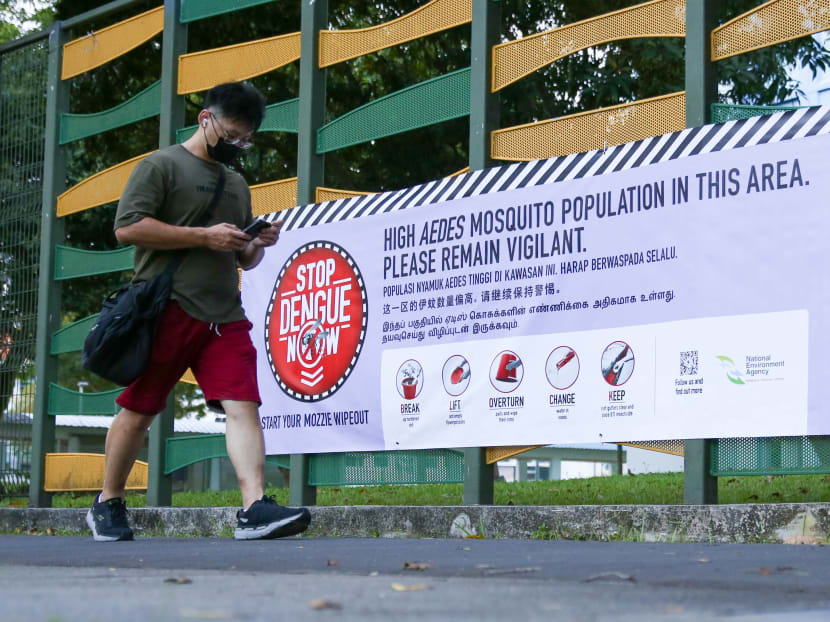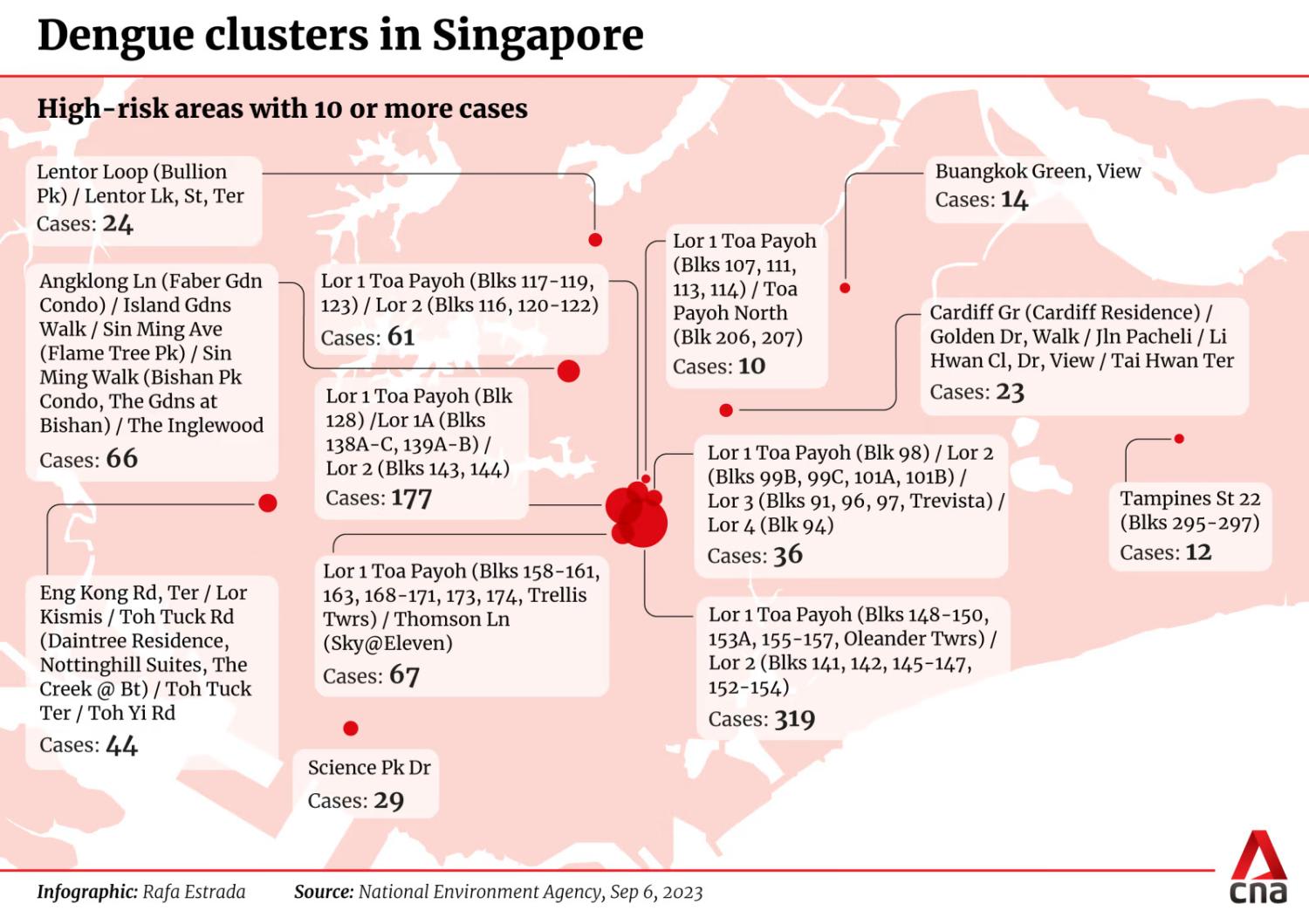NEA urges immediate action to avoid surge in dengue cases, flags large clusters and another serotype
SINGAPORE — Singapore is at risk of a surge in dengue cases, the National Environment Agency (NEA) warned on Wednesday (Sept 6) as it urged members of the public to take immediate action to prevent mosquito breeding.

A photo of a banner put up by the National Environment Agency in areas with a high population of Aedes aegypti mosquitoes.
SINGAPORE — Singapore is at risk of a surge in dengue cases, the National Environment Agency (NEA) warned on Wednesday (Sept 6) as it urged members of the public to take immediate action to prevent mosquito breeding.
"There is a risk of a surge in dengue cases as Dengue virus serotype 1 (DENV-1) gains dominance against a backdrop of high weekly dengue cases, several large and persistent dengue clusters, and high Aedes mosquito populations in many places," NEA said on its website.
"Immediate action is needed by all to avoid a surge in dengue cases."
DENV-1 cases have been on the rise over the past two months and the serotype has replaced the previously dominant dengue virus serotype 3 (DENV-3).
"In July, the monthly proportion of DENV-1 cases was approximately 55 per cent, which was almost triple the proportion of DENV-3 cases at 17 per cent," NEA said.
"The rise in proportion of a previously less prevalent dengue virus serotype is of concern, as this has historically been associated with a surge in dengue cases months later."

More than 6,200 dengue cases have been reported in Singapore this year as of Tuesday.
There are currently 48 active clusters around the country – 13 of them large ones with more than 10 cases.
These include a 319-case cluster at Lorong 1 and Lorong 2 Toa Payoh, as well as a 177-case cluster at Lorong 1A Toa Payoh, where persistent dengue transmission has been noted.
In response to queries from CNA, NEA said that about 280 mosquito breeding habitats have been detected at these large Toa Payoh clusters. More officers have also been deployed to inspect other parts of Toa Payoh.
Other large dengue clusters include the 66-case cluster at Angklong Lane in the Sin Ming area, and a 44-case cluster at Eng Kong Road in Bukit Timah.
"The 29-case dengue cluster at Science Park Drive and 24-case cluster at Lentor Loop have a fast rate of dengue transmission," NEA added.
NEA called on members of the public to remove stagnant water and carry out the "S-A-W" steps: Spray insecticide in dark corners around the house, apply insect repellent regularly and wear long-sleeve tops and long pants.
"This will protect individuals from being bitten by the Aedes mosquito," the agency said.
"Individuals diagnosed with or suspected to be infected with dengue are also advised to avoid further mosquito bites, by using insect repellent and carrying out the other S-A-W actions, to prevent passing on the dengue virus to mosquitoes and other people in their neighbourhoods."
NEA said that about 68 per cent of Aedes mosquito breeding detected in dengue cluster areas was in homes, with 29 per cent in public areas, 1 per cent at construction sites and 2 per cent at other types of premises.
"NEA urges continued individual and collective community action to prevent mosquito breeding and reduce the Aedes mosquito population," the agency said.
"All residents must also take immediate action to suppress the Aedes mosquito population and break disease transmission by regularly practising the B-L-O-C-K steps: Break up hardened soil, lift and empty flowerpot plates, overturn pails and wipe their rims, change water in vases and keep roof gutters clear and place BTI insecticide inside." CNA
For more reports like this, visit cna.asia.









